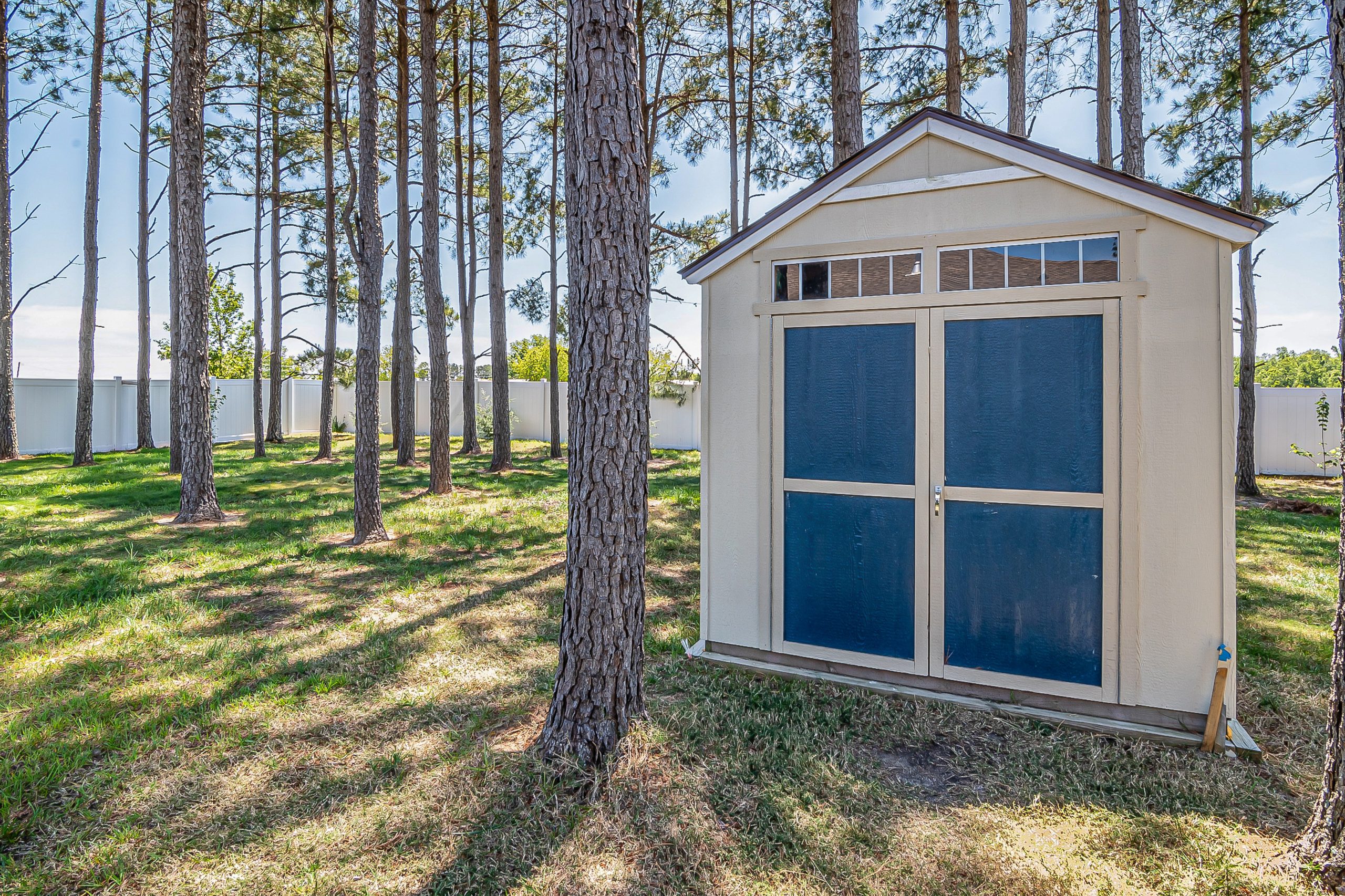
So, you just received an email from your tenant. He is renting your single-family unit and plans to stay but wants more storage space for lawn care items, outdoor furniture, and toys. Should you accommodate your tenant? Does this mean you can increase the rent? What if you install it, and then they move out – leaving it full of junk? There are a lot of questions involved, and some advisors would suggest a flat-out “NO.” But wait, let us consider the big picture here. Let’s review the pros and the cons, which may fluctuate from property to property. A little thought can save a lot of regrets.
First questions first:
-
- Do local regulations and/or your homeowner’s association include an allowance to place a storage shed on your property?
- Are there size and style limitations?
- Is there sufficient room on the property?
- Does my rental property need extra storage space? For example, is there ample garage space, storage areas, etc., that will suffice for most tenant needs, or is your property lacking in this commodity?
Assuming the above answers supported moving forward, let us evaluate deeper.
-
- Have the tenants proven to be reliable?
- Are you confident the storage shed will be used accordingly and not become just a dumping ground?
- Will it make your property more attractive?
- Will a storage shed attract more potential tenants should it become vacant again? Or will it detract?
- Will it encourage tenants to stay longer?
- Will I be able to raise the rent? If yes, how much?
The truth is, most industry experts will tell you that a shed does not add much to the value of your property. On top of that, a quality shed that will require minimal maintenance is a significant investment. However, if it attracts more and better tenants, encourages tenant retention, and allows you to charge higher rent, you are still getting solid payback. And there are additional benefits to consider, such as:
-
- Safety: If your storage shed has a lock, tenants can use it to store items such as weed killers and fertilizers, keeping them away from children and pets. It also keeps garages and/or carports free from the clutter of rakes, hoses, garden tools, etc. that can be tripping hazards.
- Increasing curb appeal: A well-chosen storage shed that blends with or accents your rental home can improve the outdoor aesthetics of your property – which is, of course, the first thing a potential tenant sees.
- It offers more than storage space: Not every tenant may want to use it for storage. For example, in our new ‘remote work’ society, some tenants may want to use it as an office area for working from home. Others may choose to use it as a hobby room or even a playhouse.
On the other hand, a storage shed can be a drawback too. Some of the downfalls can include:
-
- Storage sheds are like any other building –they require upkeep. This adds additional man-hours and expenses.
- If a tenant allows junk to collect inside the storage shed, it may also collect unwanted varmints, molds, odors, etc.
- If the above tenant moves out and leaves their junk, the disposal chores will fall on you as the landlord.
- Should you decide the pros outweigh the cons and choose to move forward, be sure to:
- Consider your target tenant – your ideal renter. Would they appreciate a storage shed and thereby be more attracted to your property?
- Apply for a building permit – this is an absolute must. Failure to do so may bring unfortunate repercussions later.
- Choose the best size for your property and budget and find one whose style matches well with the home.
- Create a maintenance plan to keep the storage shed in top-notch condition.
- Establish guidelines for the tenant, including what the shed can be used for, how clean it must remain, who pays for damages should they occur, etc.
Taking the time to consider all the above will help you make the right decision for your rental property, whether you choose to build and say no.
About Rentals America
Rentals America provides full-service property management for residential rental properties. Our team is completely dedicated to property management and we’re here to help landlords navigate the rental market.










